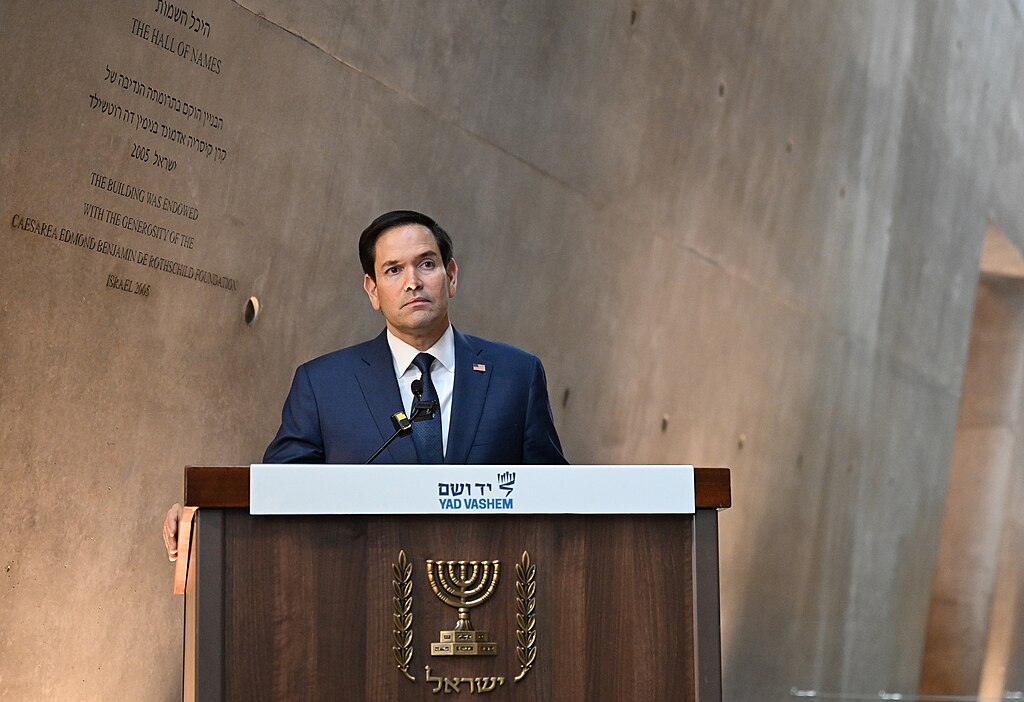U.S. Secretary of State Marco Rubio is set to testify this week before multiple congressional committees, facing bipartisan scrutiny over his loyalty to President Donald Trump and his handling of key foreign policy issues. Rubio, a former senator from Florida, was unanimously confirmed by the Senate (99-0) on January 20 as Trump’s top diplomat, just hours after the president’s second inauguration.
However, some Democrats now express regret over their votes, accusing Rubio of failing to counterbalance Trump’s unprecedented consolidation of executive power. The upcoming hearings are expected to address major concerns including deep cuts to foreign aid, downsizing at the State Department and USAID, and controversial shifts in U.S. policy on Syria, immigration, and Gaza humanitarian relief.
Rubio, once a strong advocate for foreign aid during his 14-year Senate career, will also be questioned about Trump’s suggestions to annex Greenland and turn Canada into the 51st state—moves that have strained diplomatic ties with allies. Additionally, lawmakers will challenge Rubio on the administration’s weakening global influence, particularly in competition with China. Senator Jeanne Shaheen noted that Beijing is filling the void left by the U.S. through increased diplomatic spending and foreign assistance.
Despite criticism from some Democrats like Chris Murphy and Chris Van Hollen, Republicans praise Rubio’s expanded role. Besides serving as secretary of state, he is currently acting national security adviser, USAID administrator, and acting U.S. archivist—the first to hold dual top security roles since Henry Kissinger.
Rubio’s testimony schedule includes appearances before the Senate and House Foreign Relations and Appropriations Committees on Tuesday and Wednesday. These sessions are expected to be pivotal in evaluating the administration’s foreign policy direction and Rubio’s unprecedented concentration of power.



 Trump Signs Executive Order Threatening 25% Tariffs on Countries Trading With Iran
Trump Signs Executive Order Threatening 25% Tariffs on Countries Trading With Iran  Netanyahu to Meet Trump in Washington as Iran Nuclear Talks Intensify
Netanyahu to Meet Trump in Washington as Iran Nuclear Talks Intensify  South Korea Assures U.S. on Trade Deal Commitments Amid Tariff Concerns
South Korea Assures U.S. on Trade Deal Commitments Amid Tariff Concerns  Norway Opens Corruption Probe Into Former PM and Nobel Committee Chair Thorbjoern Jagland Over Epstein Links
Norway Opens Corruption Probe Into Former PM and Nobel Committee Chair Thorbjoern Jagland Over Epstein Links  Nighttime Shelling Causes Serious Damage in Russia’s Belgorod Region Near Ukraine Border
Nighttime Shelling Causes Serious Damage in Russia’s Belgorod Region Near Ukraine Border  U.S. Announces Additional $6 Million in Humanitarian Aid to Cuba Amid Oil Sanctions and Fuel Shortages
U.S. Announces Additional $6 Million in Humanitarian Aid to Cuba Amid Oil Sanctions and Fuel Shortages  New York Legalizes Medical Aid in Dying for Terminally Ill Patients
New York Legalizes Medical Aid in Dying for Terminally Ill Patients  Iran–U.S. Nuclear Talks in Oman Face Major Hurdles Amid Rising Regional Tensions
Iran–U.S. Nuclear Talks in Oman Face Major Hurdles Amid Rising Regional Tensions  Japan Election 2026: Sanae Takaichi Poised for Landslide Win Despite Record Snowfall
Japan Election 2026: Sanae Takaichi Poised for Landslide Win Despite Record Snowfall  China Warns US Arms Sales to Taiwan Could Disrupt Trump’s Planned Visit
China Warns US Arms Sales to Taiwan Could Disrupt Trump’s Planned Visit  Trump Backs Nexstar–Tegna Merger Amid Shifting U.S. Media Landscape
Trump Backs Nexstar–Tegna Merger Amid Shifting U.S. Media Landscape  India–U.S. Interim Trade Pact Cuts Auto Tariffs but Leaves Tesla Out
India–U.S. Interim Trade Pact Cuts Auto Tariffs but Leaves Tesla Out  US Pushes Ukraine-Russia Peace Talks Before Summer Amid Escalating Attacks
US Pushes Ukraine-Russia Peace Talks Before Summer Amid Escalating Attacks  Jack Lang Resigns as Head of Arab World Institute Amid Epstein Controversy
Jack Lang Resigns as Head of Arab World Institute Amid Epstein Controversy  U.S.-India Trade Framework Signals Major Shift in Tariffs, Energy, and Supply Chains
U.S.-India Trade Framework Signals Major Shift in Tariffs, Energy, and Supply Chains  Missouri Judge Dismisses Lawsuit Challenging Starbucks’ Diversity and Inclusion Policies
Missouri Judge Dismisses Lawsuit Challenging Starbucks’ Diversity and Inclusion Policies  TrumpRx Website Launches to Offer Discounted Prescription Drugs for Cash-Paying Americans
TrumpRx Website Launches to Offer Discounted Prescription Drugs for Cash-Paying Americans 































